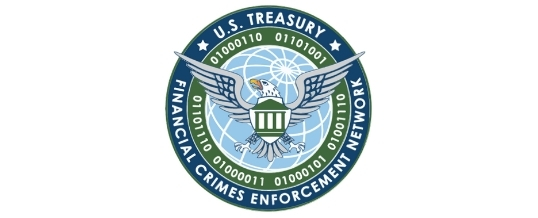
The recent FinCEN leak is a ground shaking new revelation that’s showing the world exactly what big banks know about how money is laundered and who is behind it all. This leak, dubbed the FinCEN Files, has revealed money laundering activities with various offshore companies and and banks, and in this article, we’ll discuss the bottom line of what you need to know about this unprecedented story.
What is FinCEN Files?
FinCEN, or the Financial Crimes Enforcement Network, is a part of the United States Department of the Treasury that collects and analyzes data about financial transactions. This is all done to reduce international money laundering, terrorist financing, and other crimes of financial nature. FinCEN was launched in 1990 to comb through information required by the Bank Secrecy Act. As per FinCEN regulations, banks are required to report suspicious activity with SARs, or suspicious activity reports. These reports are required to be filed within 30 days of the transaction(s) in question, and they are typically kept private. That’s where the FinCEN Files comes in.
The FinCEN Files is shedding serious light on the criminal activities in the financial sector and who knows about it. Some of the largest banks in the world are involved, bringing into question the banking system and how they play a part in money laundering. The FinCEN Files were initially sent to Buzzfeed, and from there, they were distributed to news outlets. Now, people around the world are getting an in-depth look at this revealing leak and how serious and widespread financial crimes truly are.
As it stands, we can see that more than 2,000 SARs were filed with FinCEN between 2000 and 2017. As part of the leak, we’re seeing that approximately $2 trillion is in question; this is the amount that was reported in total via the SARs.
The UN estimates that money laundering could account for 5% of the total global GDP. This is a staggering statistic for anyone concerned with financial crimes. The FinCEN Files spread like wildfire, being distributed and published in more than 80 countries and multiple languages within a week of the initial leak. This leak has shown that some of the world’s largest and perhaps most trusted banks have allowed money laundering and other financial crimes.
It’s a startling revelation. Banks are supposed to be helping fight money laundering and financial crimes. If they find evidence of criminal activity, they are supposed to freeze or close accounts, but it’s not being done across the board, and the financial crime statistics continue to climb. In essence, the FinCEN Files show us exactly what banks know about dirty money around the world.
The SARs leak sheds light on financial crimes, but it also is a problem for national security, law enforcement investigations, and even for the individuals who have filed the reports.
Say No to Offshore Banking?
Since offshore banking is involved in some of these cases, we have to turn to offshore jurisdictions. Is offshore banking still a viable part of wealth management? Or is it too late to trust offshore?
The truth of the matter is that offshore banking can be just as reputable as domestic banking, and in some cases, offshore banking can be a better alternative to domestic banking. When choosing any bank, it’s important to find one that meets your needs, but when looking to offshore, it’s important to find one that is reputable.
There are solid offshore jurisdictions out there, but you have to do your due diligence to find them. Once found, the benefits are incredible. For example, full reserve banking means that you don’t have to worry about bank instability to do overextended lending. You can enjoy discretion, better interest rates, and lower tax liability. It’s all in what you want.
What is paramount in this case is finding an offshore bank that stays compliant with regulations. It’s also important to always remember that money laundering carries serious consequences. People who are seeking to commit a financial crime should always expect to pay for it in the long run. As long as you are following the rules, you have nothing to worry about.
To Conclude...
While it’s true that the FinCEN Files are rocking the financial world at the moment, it’s good to know that offshore banking isn’t at fault. The media and opponents of the notion often try to paint offshore banking in a negative light.
As long as you are staying compliant with any regulations set forth by your home country, as well as those in the jurisdiction where you’re banking, then you’ve got little to worry about.
OCT
2020

Table of Contents